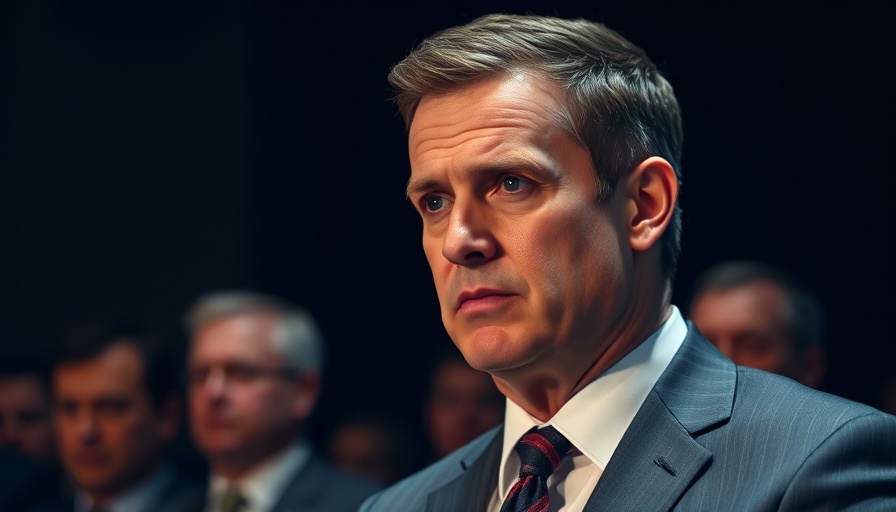
The Dilemma of Copyright in the Age of AI
As technology continues to evolve, the intersection of copyright law and artificial intelligence (AI) poses significant dilemmas for creators and companies alike. The recent ruling by a federal judge in favor of Meta, which allowed the company to train its AI models using copyrighted books, demonstrates the complex and often contentious nature of copyright in modern media. This situation is particularly relevant for parents of school-aged children, who are increasingly exposed to digital media and who might wonder about the implications of such legal battles on the educational content their children consume.
What the Ruling Means for Authors and Publishers
The case, brought by 13 authors—including notable figures like Sarah Silverman—was pivotal in determining whether Meta’s actions were indeed infringing on copyright laws. Judge Vince Chhabria's decision emphasized that the authors failed to provide sufficient evidence that their market was harmed by Meta’s AI training practices. The ruling suggests that while Meta’s actions were deemed transformative and therefore capable of falling under the 'fair use' doctrine, the scope of this ruling is limited. It does not mean a blanket allowance for companies to use copyrighted materials at will.
Fostering a New Age of AI and Creativity
This ruling opens a dialogue about the future of creativity and technological advancement. Parents may wonder how AI-generated content will influence what their children read in schools or online. As AI tools become more sophisticated, there's potential for educational applications that leverage these technologies. However, it also raises valid concerns about authorship and the rights of original creators. The challenge lies in finding a balance that honors intellectual property while facilitating innovation.
Market Implications and Future Context
The implications of this ruling extend beyond just the authors involved. The market for copyrighted materials is ever-evolving, especially with technology giants training AI models on vast data sets including books, articles, and more. A ruling in favor of tech companies may undermine traditional authorship norms and open floodgates for other tech firms to use copyrighted materials without adequate compensatory structures for artists. Lisa Wang, an education policy analyst, emphasizes that parents should be aware of these trends as they may dictate the types of materials available in classrooms or even how their children interact with content online.
Counterarguments: The Case for Copyrighted Material
While technological advancements herald new possibilities, there is a counterargument regarding the protection of artistic rights. Critics of the ruling highlight that the rationale behind copyright laws is to protect the creative output from dilution or unlicensed use. As AI becomes an integral part of content creation, the divide between human-generated and AI-generated materials will likely grow. This raises ethical questions regarding the appropriateness of using works without explicit consent. As guardians of the next generation’s media consumption, parents may want to engage in discussions with schools about the content being used and the rights of authors.
AI: A Tool for Engagement and Learning
AI does hold potential as a tool for enhancing student engagement through interactive and personalized learning experiences. If properly utilized, AI can help curate content that not only educates but also encourages critical thinking. As AI technology continues to develop and be integrated into educational environments, fostering discussions around copyright and authorship becomes crucial for ensuring a healthy relationship between technology and creativity. Parents should take a proactive role in understanding how these technologies work and the protections that are in place for intellectual property.
What Parents Should Take Away
The emerging legal landscape surrounding AI and copyright is a significant topic for today and the future. Parents of school-aged children should consider the implications of such cases and engage with their children’s education regarding technology and creativity. As more companies like Meta challenge traditional norms, it's vital to think critically about the materials their children are exposed to and how these legal decisions may redefine educational content in classrooms.
Final Thoughts: Influencing the Next Generation
This ruling marks a pivotal moment in the tech industry’s relationship with creative content, shaping how both educators and parents approach learning materials in an AI-driven landscape. As these technologies continue to develop, discussions about copyright, authorship, and the market will be essential for ensuring that the rights and voices of creators are maintained while leveraging the opportunities presented by technology.
By staying informed, parents can guide their children’s interactions with digital content and advocate for a balanced approach that respects creative rights while embracing innovation in education.
 Add Row
Add Row  Add
Add 




Write A Comment